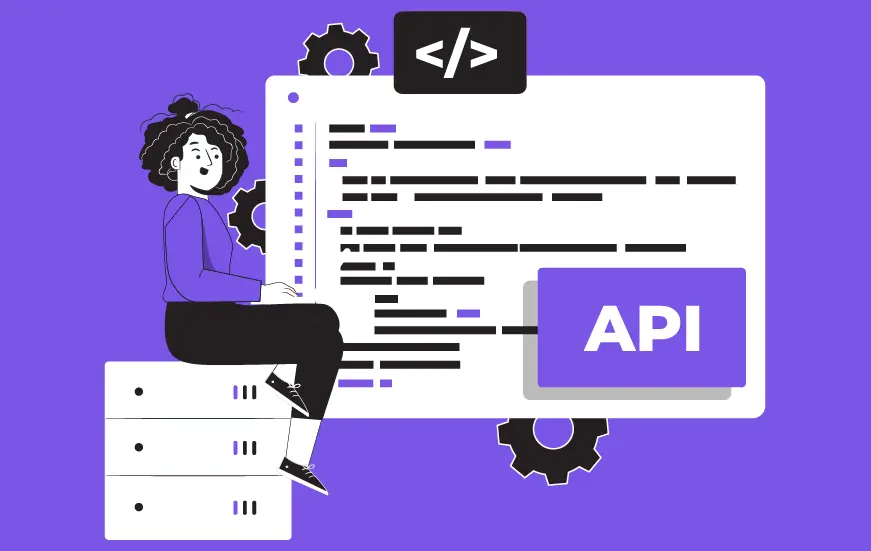- Web App Framework Architecture
- Web framework types
- Changes In Web App Development
- Focus on user experience
- Greater demand for API
- Increased focus on security
- Browser maturity and javascript-based client
- Rich level of interaction
- Real-time applications
- Emphasis on tools
- Blockchain technology
- Artificial intelligence and bots
- More hardware diversity
- Frequently Asked Questions
The field of web development is a rapidly expanding one, more so, due to the advent of the latest web app development technologies and improvement in the available resources and tools. The web application development becomes one of the critical attributes, through which the target audiences for the business will be enhanced.
With the reliance of more and more businesses on the web, the web application technology is contributing more towards the sustainability of the business. Various trends are applied in order to make the web development process more productive and driven by results. As the requirements of the customers change, these trends also change along with the answer of the question ‘what is web application development’. The fact that remains unchanged is the evolution of web development by framework, architecture, design, or any other component.
Web App Framework Architecture
Most of the web frameworks depend upon the MVC (Model-View-Controller) architecture. The thought behind why this is favored lies in its reasonable design and plan that isolates the application logic from the interface and structures the three fundamental parts that are addressed in the architecture’s name — MVC (Model-View-Controller).
The MVC model involves rapid and parallel development, making the development process fast. The MVC pattern also provides multiple views and modification options without disturbing the entire model.

Web framework types
Promoting a business seems an easy task but when we really come to do that as a task then it is time consuming and brainstorming work. Still if you are confused on how to promote over the internet, then it is possible through interactive websites. There is a constant evolution of web application development process as the perception about it is changing to something that is more vibrant and dynamic.
As web standards advanced with the time, the application logic moved towards the client- guaranteeing smart communication between the user and the web application. With logic on the client side, the client can respond quickly to user input. This makes web applications more responsive, efficient and navigable on any device. In this way, we have two elements of frameworks —
a) the one to deal with the server side, that assists with setting up application logic on the server, i.e. backend or
b) to work on the client side (front end).
The front-end framework involves the external part of the website, i.e. it manages what the user sees when they open the application. The back-end manages the internal part, i.e the one where developers are involved in coding.
Let’s learn and know more about some of these mind-blowing changes in web app development.
Changes In Web App Development
Focus on user experience
The users of mobile apps expect simple, intuitive interfaces from their apps. The web application developer must keep in mind this user experience. With the matured web development, the demands for easier to use web apps grows.
Greater demand for API
SaaS (Software as a service) is getting embraced by more and more businesses that are able to address specific needs. The implication for the web application developer is the need to integrate with other applications. This is the reason behind the growth and popularity of the Application Programming Interface (API). No wonder that API-centric web applications are gaining attention since they render faster web development processes.

Increased focus on security
So far, there was a focus on the usability and the interfaces of web apps. As per a recent study, 96 % of web apps have vulnerabilities. There is an increased demand for the security of the application. The need for secure web apps outweighs the need for the speedy development of web applications. The practices followed must be analyzed.
Browser maturity and javascript-based client
We see web application technologies such as AI (Artificial Intelligence) and in-memory along with the emergence of JavaScript-based clients. The last three to four years witnesses more maturing JavaScript frameworks based on coffee scripts and the traditional way of class-oriented writing. Compiling in Java helps to find more problems than Javascript. The browsers are better. The fundamental differences between browsers are made simpler with Jquery.
Rich level of interaction
The web applications must be more like native applications, demanding a change in the developer’s strategy for web application advantages and development. The shift is essentially from the server-side to the client-side. There is a trend towards the richer, interactive clients with the use of frameworks like Angular.js. Faster Javascript Engines like Chrome V8 and the corresponding frameworks helps to move the jobs to the user’s browser, from the server-side browser. The user’s browser windows will enable better visualization and data analysis in real-time.
Real-time applications
There is a change towards more real-time apps that communicate directly with the server, without a page refresh. Building real-time apps becomes easier with Node.js and Socket.io. This simply works great with instant messaging, real-time document collaboration and editing, chat and real-time analytics.
Emphasis on tools
An increasing number of tools are now being used, with a change towards the usage of the web from intranet non-critical things to the mission-critical piece. There is an increasing complexity that is happening as a result of the evolution of web development. So, we see the usage of tools, libraries, and frameworks that enhances the productivity of the developers and helps to fill the gaps in skills. Web application development tools make the life of the developer a lot easier and constantly help them explore new ways for web development.
Blockchain technology
According to some reports in 2019, more than 34 million blockchain wallets were utilized internationally. Blockchain technology requires hardware and software support, legal regulation, and foundation for trading. Benefits of web application development is not just limited to APIs and programming, the emerging web technologies probably cover the viewpoints of the emerging new technology like blockchain. Thus, blockchain activities ought to be secure, shielded from hackers and tech errors. Significant banks have planned to develop algorithms for ensuring and protecting user information and guard crypto trading as safe as a regular currency.

Artificial intelligence and bots
Large B2C organizations use the AI and Bot technology to serve their clients and users, such as official page chatbots inside Facebook Messenger, WhatsApp, and Skype are some genuine examples. A bot could be coordinated into website, professional or home equipment, and any Internet-connected application created by a commercial organization.
The growth of chatbots will impact trends in website design, particularly UX one. The critical progression of AI and machine learning technology resulted in demand for virtual assistant designs, which isn’t just about visual experience, or product service, but also resulting in valuable design. The main benefit of AI-based bots is that it provides 24/77 assistance, human-like experience, and deep customer behaviour analytics.

More hardware diversity
Due to the advent of smartphones and tablets, responsive designs are much in focus. The web application programming must adapt to various interfaces as well as screen sizes. The developer must keep it in mind that it is not only developed for the web browser but the various devices. The smartphones and the tablets are constrained by the processing power and the memory of the desktop. The best page load time must be kept in mind, while the mobile app development process lasts. The touchscreen functionality itself poses a change with color and more visibility, a place where the action is taken.
The application users simply make better decisions with a more sophisticated and data-intensive web application, with the use of advanced analytics and data visualization capabilities like D3 ( data-driven documents). Microservices are becoming more prominent, with newer architectural patterns incorporated in the web application framework. Thus, there is a strong need to change the ways of developing a web application, which mirrors the changing web development trend and market.
Are you prepared for this change? If you think you are ready to imbibe the changes in your application then you can refer to Appinventiv, a trustworthy and reliable custom web application development company in USA. A company that will always help you expand your app development journey.
Frequently Asked Questions
Q. What is a web application platform?
A web app platform is a tool used in the web application programming process. It helps developers to create web applications and APIs faster. One such example is Enonic XP, a highly scalable and open-source web app platform. Because it is based on open standards, you can code server logic with JavaScript on it.
Q. What technologies are used to create a web-based application?
Web app technologies for development are the core ingredients for developing an excellent web app. Some of the major technologies that any developer cannot do without are:
- Browsers
- HTML & CSS
- Programming Languages
- Web app development frameworks such as Laravel and Django
- API
- Protocols
- Data Formats
- Client-side and Server-side
Q. What are the functions of a web application?
Web applications have a lot of roles to perform. They are used by businesses as an extension of their mobile apps. Let’s take the example of E-Commerce apps. Along with such apps businesses also provide web apps for enabling people to use their services without the need of downloading any app. Moreover, companies that deliver SaaS completely rely on web applications to provide services to customers.



How Much Does It Cost to Develop a Web App like Hukoomi?
According to a report, out of 8.1 billion of the estimated global population (measured on 14th Sept 2023), approximately 5.18 billion are internet users, meaning over 65% of the world's population uses web apps for various purposes. So, in an era where digital transformation is revolutionizing almost every aspect of the modern business world, the…

Website Development Cost Estimation in 2024: A Closer Analysis
Are you a budding entrepreneur looking forward to kickstarting your digital business or an enterprise looking to enhance its online presence through a well-performing website? If yes, you have landed at the right place. Being one of the most powerful marketing channels, a website can drive higher sales and enhance customer retention. It can further…









